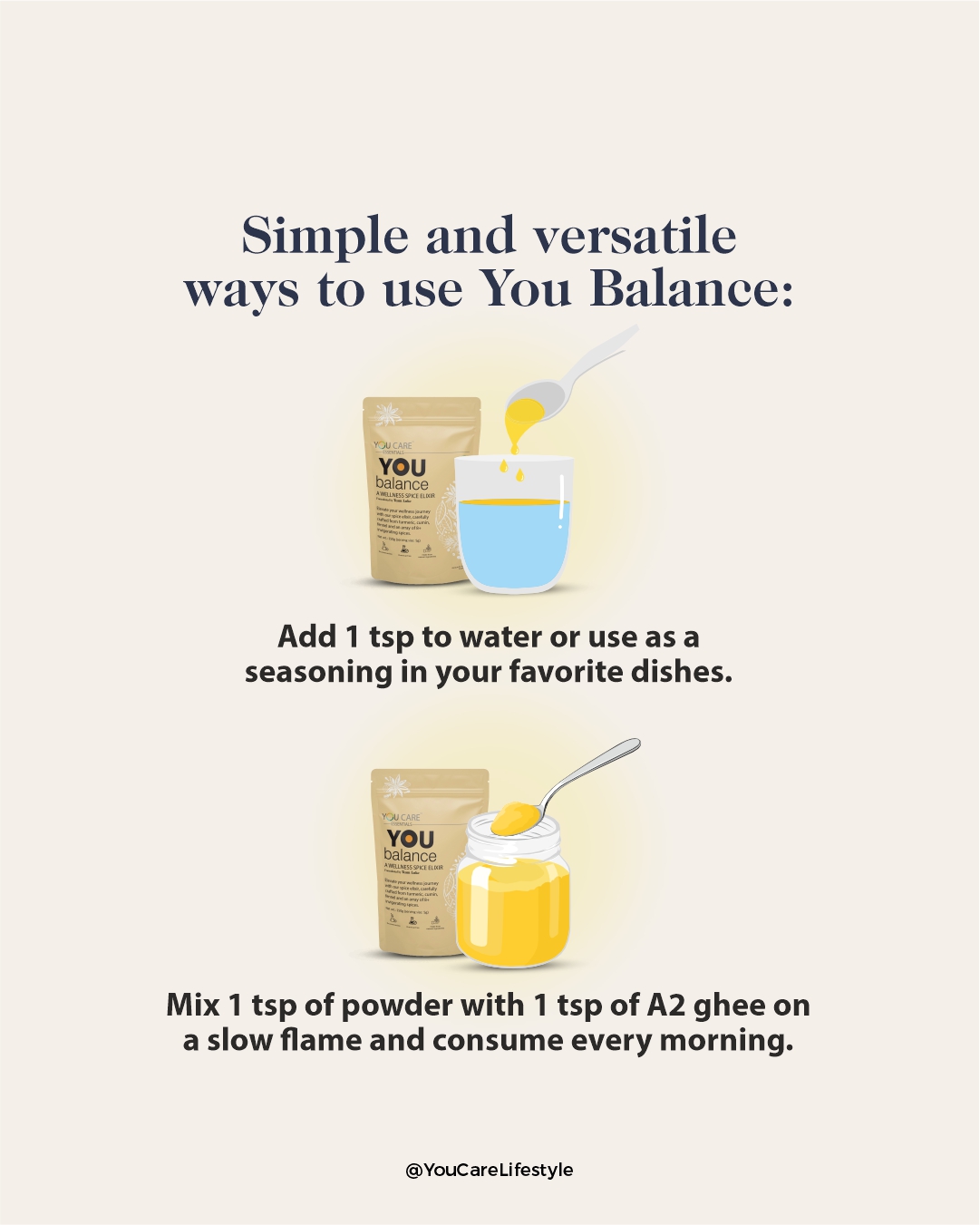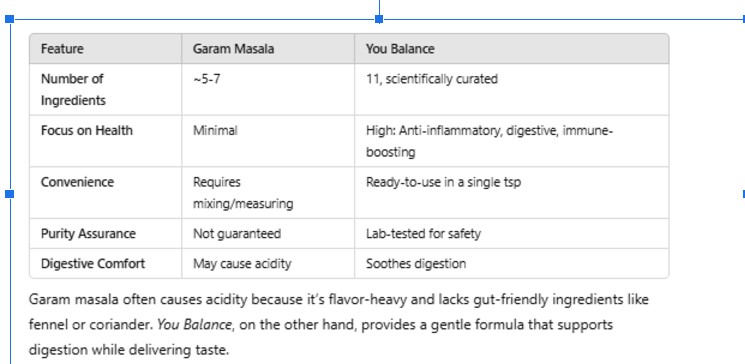Chronic inflammation is increasingly recognized as a fundamental factor in the progression of numerous diseases, including cardiovascular conditions, diabetes, cancer, and neurodegenerative disorders. Recent scientific research has expanded our understanding of its mechanisms, impacts, and effective interventions. This article delves into the latest findings while presenting practical strategies to combat chronic inflammation.
In today’s world, chronic inflammation is rampant due to:
- Poor Dietary Habits: High intake of refined sugars, trans fats, and processed foods.
- Environmental Toxins: Air and water pollution introduce free radicals that trigger inflammatory pathways.
- Lifestyle Stress: Chronic psychological stress disrupts immune function and promotes inflammation.
- Sedentary Behavior: Limited physical activity exacerbates weight gain and metabolic issues.
- Gut Dysbiosis: Imbalanced gut microbiota due to modern diets increases systemic inflammation.
The result? A cascade of health issues rooted in chronic inflammation, making it essential to address this silent epidemic.
Table of Contents
- Understanding Chronic Inflammation
- Definition and Mechanisms
- Recent Research Highlights
- The Science of Anti-Inflammatory Spices: Unveiling the Power of You Balance
- 1. Turmeric (Curcuma longa)
- 2. Black Pepper (Piper nigrum)
- 3. Ceylon Cinnamon (Cinnamomum verum)
- 4. Cardamom (Elettaria cardamomum)
- 5. Amla Powder (Phyllanthus emblica)
- 6. Fenugreek Seeds (Trigonella foenum-graecum)
- 7. Cloves (Syzygium aromaticum)
- 8. Coriander Seeds (Coriandrum sativum)
- 9. Ginger Powder (Zingiber officinale)
- 10. Fennel Seeds (Foeniculum vulgare)
- 11. Cumin Seeds (Cuminum cyminum)
- How You Balance Works Synergistically
- Practical Usage for Inflammation Management
- Conclusion
- Why Should You Choose You Balance Over DIY Spice Mixes or Garam Masala?
- It’s natural to think, “Why buy You Balance when I can mix these spices myself?” But are you sure you can consistently measure, mix, and maintain the right proportions of 11 ingredients every single time to ensure maximum health benefits? This is where You Balance simplifies your wellness routine, offering precision, purity, and convenience that’s hard to replicate.
- Science You Can’t DIY
- The power of You Balance lies in its precise formulation:
- Can you confidently recreate this scientifically curated blend in your kitchen, day after day?
- Simplify Your Wellness Routine
- Let’s be honest—adding 11 spices in the right proportions daily is time-consuming and difficult to maintain. With You Balance:
- A Healthier Choice Than Garam Masala
- Garam masala is made for taste, not health, and often lacks crucial ingredients like amla or black pepper in the right quantities. Plus, garam masala:
- In comparison, You Balance is gentle on digestion and packed with anti-inflammatory, immune-boosting ingredients.
- Convenience for Modern Lifestyles
- Balancing 11 ingredients in the perfect proportions daily? It’s time-consuming and impractical for most of us. Here’s where You Balance truly shines:
- Purity and Bioavailability
- While store-bought spices and masalas may include harmful contaminants, You Balance prioritizes safety and efficacy:
- Tailored Wellness for Every Lifestyle
- You Balance adapts to your unique needs, offering personalized benefits across age groups and life stages:
- A Simple Wellness Ritual for All
- You Balance isn’t just about convenience—it’s a way to support your body naturally, with scientifically crafted precision. Whether you’re sipping it with warm water, adding it to meals, or using it during a detox, it simplifies health while delivering scientifically proven benefits.
- The Verdict?
- Garam masala is great for flavor, but if you’re looking for a blend that works for your health and well-being, You Balance is your answer. It offers precision, purity, and purpose in every teaspoon—an effortless way to enhance your wellness journey.
- Simplify health, one tsp at a time. Start your You Balance journey today!
- Bibliography
Understanding Chronic Inflammation
Definition and Mechanisms
Chronic inflammation is a prolonged immune response that can last for months or years. Unlike acute inflammation, which serves as a protective response to injury or infection, chronic inflammation persists and contributes to tissue damage and disease progression. Key mechanisms include:
- Persistent Inflammatory Stimuli: Chronic infections, environmental toxins, or autoimmune dysfunction trigger ongoing inflammation.
- Immune Dysregulation: Prolonged activation of immune cells creates an imbalance in pro-inflammatory and anti-inflammatory cytokines.
- Tissue Damage: Recruitment of immune cells like macrophages perpetuates oxidative stress and inflammation.
Recent Research Highlights
1. Inflammation and Cardiovascular Disease
- Studies in Nature Reviews Cardiology (2024) highlight that inflammatory cytokines contribute to plaque formation in arteries, leading to heart attacks and strokes. Targeting inflammation is emerging as a therapeutic strategy to reduce cardiovascular risk.
2. Gut Microbiome and Chronic Inflammation
- Research in Nature (2023) emphasizes the link between gut health and inflammation. Dysbiosis, or an imbalance in gut microbiota, elevates inflammatory markers like IL-6 and TNF-α. Restoring gut balance through probiotics and dietary changes can reduce systemic inflammation.
3. Neurodegenerative Diseases
- Chronic neuroinflammation, driven by overactive microglia (immune cells in the brain), accelerates neuronal damage. Reviews in Frontiers in Neuroscience (2024) suggest that targeting neuroinflammation may help mitigate Alzheimer’s and Parkinson’s diseases.
4. Metabolic Syndrome
- Chronic low-grade inflammation underpins metabolic syndrome, contributing to insulin resistance, obesity, and lipid imbalances. A meta-analysis in Diabetes Care (2023) highlights lifestyle changes as effective interventions for reducing inflammation-related metabolic dysfunction.
5. Inflammation and Cancer
- While acute inflammation can suppress tumors, chronic inflammation promotes tumor progression through cytokines and growth factors. Research in Cancer Immunology Research (2024) underscores the dual role of inflammation in cancer and the potential for targeted therapies.
The Science of Anti-Inflammatory Spices: Unveiling the Power of You Balance
Nature has long provided solutions for combating inflammation, and spices are at the forefront, offering a potent mix of bioactive compounds. The 11 ingredients in You Balance work synergistically to reduce inflammation, improve metabolic health, and support overall well-being. Let’s take a closer look at the mechanisms and evidence behind each ingredient, rooted in cutting-edge research.

1. Turmeric (Curcuma longa)
- Active Compound: Curcumin.
- Mechanism: Curcumin modulates inflammatory pathways by inhibiting the nuclear factor kappa B (NF-κB), a master regulator of inflammation. It also reduces the production of pro-inflammatory cytokines like tumor necrosis factor-alpha (TNF-α) and interleukin-6 (IL-6).
- Scientific Insight: A double-blind, placebo-controlled trial found that curcumin, when paired with black pepper (piperine), significantly reduced high-sensitivity C-reactive protein (hs-CRP) levels—a key marker of systemic inflammation—and alleviated osteoarthritic pain (NCBI).
2. Black Pepper (Piper nigrum)
- Active Compound: Piperine.
- Mechanism: Enhances the bioavailability of curcumin by up to 2,000% by inhibiting glucuronidation in the liver. Piperine also directly reduces oxidative stress and inflammation by suppressing pro-inflammatory mediators.
- Scientific Insight: Studies show that piperine’s ability to inhibit interleukin-1β and TNF-α makes it a crucial anti-inflammatory agent, especially in combination therapies (Semantics Scholar).
3. Ceylon Cinnamon (Cinnamomum verum)
- Active Compounds: Cinnamaldehyde and polyphenols.
- Mechanism: Reduces inflammatory cytokines, particularly TNF-α and IL-6, while combating oxidative stress. It enhances insulin sensitivity, which indirectly mitigates inflammation linked to metabolic disorders.
- Scientific Insight: Research published in Diabetes Care highlighted cinnamon’s role in lowering fasting blood glucose levels and improving inflammatory markers in individuals with metabolic syndrome (PubMed).
4. Cardamom (Elettaria cardamomum)
- Active Compounds: Flavonoids and terpenoids.
- Mechanism: Acts on inflammatory pathways by modulating the expression of enzymes like cyclooxygenase (COX) and lipoxygenase (LOX), reducing oxidative damage and systemic inflammation.
- Scientific Insight: A systematic review noted cardamom's potential in lowering serum CRP levels, reflecting its anti-inflammatory and antioxidative properties (MDPI).
5. Amla Powder (Phyllanthus emblica)
- Active Compounds: Vitamin C, tannins, and polyphenols.
- Mechanism: Reduces oxidative stress, enhances glutathione peroxidase (an antioxidant enzyme), and decreases CRP levels.
- Scientific Insight: Clinical studies demonstrate amla's ability to bolster immune response, reduce lipid peroxidation, and lower systemic inflammation markers like hs-CRP (NCBI).
6. Fenugreek Seeds (Trigonella foenum-graecum)
- Active Compounds: Saponins, alkaloids, and flavonoids.
- Mechanism: Suppresses inflammatory mediators such as COX-2 enzymes and prostaglandins while improving insulin sensitivity, which contributes to inflammation reduction.
- Scientific Insight: Fenugreek has been shown to significantly lower inflammatory cytokines and improve metabolic markers in patients with type 2 diabetes (Semantics Scholar).
7. Cloves (Syzygium aromaticum)
- Active Compound: Eugenol.
- Mechanism: Acts as a potent inhibitor of COX-2 and prostaglandin synthesis, alleviating inflammation, swelling, and pain. Eugenol also exerts antioxidative effects, neutralizing free radicals.
- Scientific Insight: Research highlights cloves’ efficacy in reducing inflammatory cytokines and oxidative stress in arthritis models (Semantics Scholar).
8. Coriander Seeds (Coriandrum sativum)
- Active Compounds: Linalool, terpenoids, and polyphenols.
- Mechanism: Suppresses nitric oxide synthesis and downregulates inflammatory mediators like TNF-α and IL-6.
- Scientific Insight: Coriander has been linked to improved gut health, systemic inflammation reduction, and enhanced antioxidative capacity in preclinical studies (MDPI).
9. Ginger Powder (Zingiber officinale)
- Active Compounds: Gingerol and shogaol.
- Mechanism: Inhibits NF-κB activation and reduces the production of COX-1 and COX-2 enzymes, thereby suppressing inflammatory prostaglandins.
- Scientific Insight: A meta-analysis demonstrated significant improvements in pain and inflammation among arthritis patients who consumed ginger regularly (NCBI).
10. Fennel Seeds (Foeniculum vulgare)
- Active Compounds: Anethole and flavonoids.
- Mechanism: Reduces markers of oxidative stress, such as malondialdehyde (MDA), and suppresses inflammatory cytokines.
- Scientific Insight: Fennel seeds have been shown to support digestive health and reduce systemic inflammation in animal and human studies (MDPI).
11. Cumin Seeds (Cuminum cyminum)
- Active Compounds: Cuminaldehyde and polyphenols.
- Mechanism: Suppresses the activity of NF-κB and reduces levels of pro-inflammatory cytokines like IL-6 and TNF-α.
- Scientific Insight: Studies highlight cumin’s role in supporting gut health and mitigating metabolic inflammation, particularly in obese individuals (PubMed).
How You Balance Works Synergistically
The combination of these 11 spices in You Balance delivers a holistic approach to combating chronic inflammation:
- Targeting Key Pathways: Reduces inflammation by downregulating NF-κB and suppressing pro-inflammatory cytokines like IL-6, TNF-α, and CRP.
- Boosting Antioxidant Activity: Neutralizes free radicals and supports the production of endogenous antioxidants.
- Enhancing Metabolic Health: Improves insulin sensitivity, modulates lipid profiles, and reduces inflammation linked to metabolic dysfunction.
- Supporting Gut Health: Alleviates gut-derived inflammation and fosters a healthy microbiome.
Practical Usage for Inflammation Management
- Daily Dosage: Mix ½ tsp of You Balance in warm water or ghee on an empty stomach for maximum absorption.
- Culinary Integration: Add to soups, teas, curries, or stews for a flavorful and health-boosting addition.
- Consistency: Regular use can ensure cumulative benefits, amplifying anti-inflammatory and metabolic effects.
By harnessing ancient wisdom and modern science, You Balance empowers you to address inflammation naturally and sustainably
Conclusion
Chronic inflammation is at the root of many modern health issues. By harnessing the science-backed anti-inflammatory properties of these 11 powerful spices, You Balance offers a natural and effective way to combat inflammation and improve overall well-being. Incorporating this blend into your daily routine is a step toward a healthier, inflammation-free life.
Why Should You Choose You Balance Over DIY Spice Mixes or Garam Masala?
It’s natural to think, “Why buy You Balance when I can mix these spices myself?” But are you sure you can consistently measure, mix, and maintain the right proportions of 11 ingredients every single time to ensure maximum health benefits? This is where You Balance simplifies your wellness routine, offering precision, purity, and convenience that’s hard to replicate.
Science You Can’t DIY
The power of You Balance lies in its precise formulation:
Perfect Ratios, Every Time: Achieving the exact balance of 11 ingredients is no small feat. Even missing a single spice or misjudging proportions can lead to losing out on the synergistic benefits that enhance absorption and efficacy.
Enhanced Absorption: For example:
Turmeric paired with black pepper increases curcumin absorption by 2,000%.
Ceylon cinnamon supports metabolism far better than cassia cinnamon.
Ginger and cumin work together to reduce inflammation and improve digestion.
Can you confidently recreate this scientifically curated blend in your kitchen, day after day?
Simplify Your Wellness Routine
Let’s be honest—adding 11 spices in the right proportions daily is time-consuming and difficult to maintain. With You Balance:
One Step, Multiple Benefits: Just ½ tsp delivers the combined power of 11 carefully selected spices.
No Guesswork: Forget worrying about whether you’ve added too much turmeric or forgotten the amla. You Balance ensures consistency with every scoop.
A Healthier Choice Than Garam Masala
Garam masala is made for taste, not health, and often lacks crucial ingredients like amla or black pepper in the right quantities. Plus, garam masala:
May Trigger Acidity: Its flavor-heavy profile can irritate the gut.
Isn't Health-Focused: It’s not designed to support digestion, immunity, or metabolism.
In comparison, You Balance is gentle on digestion and packed with anti-inflammatory, immune-boosting ingredients.

Convenience for Modern Lifestyles
Balancing 11 ingredients in the perfect proportions daily? It’s time-consuming and impractical for most of us. Here’s where You Balance truly shines:
One Tsp, Multiple Benefits
Just ½ - 1 tsp in warm water or your meals ensures you get the combined power of health-enhancing spices, without the hassle of measuring or mixing.Time-Saving and Portable
Ideal for frequent travelers, office-goers, and hostel residents:Travel-Friendly: Compact and lightweight, it eliminates the need to carry multiple spices while ensuring your health routine stays intact.
Office Wellness Boost: A quick mix into tea or warm water during your break supports digestion and boosts energy.
Hostel-Ready: For students or professionals with limited cooking resources, You Balance offers an easy way to boost nutrition in soups, quick meals, or even plain warm water.
Purity and Bioavailability
While store-bought spices and masalas may include harmful contaminants, You Balance prioritizes safety and efficacy:
Third Party Lab-Tested Purity: Every batch is tested for pesticides, lead, and other contaminants.
Enhanced Absorption: Ingredients like black pepper amplify the bioavailability of nutrients, making You Balance far more effective than using spices individually or in generic blends.
Tailored Wellness for Every Lifestyle
You Balance adapts to your unique needs, offering personalized benefits across age groups and life stages:
For Travelers: Combat bloating, indigestion, and immunity dips caused by disrupted routines.
For Office-Goers: Manage stress-induced acidity or sluggish digestion with a quick mid-day drink.
For Hostel Residents: Simplify nutrition with a ready-to-use blend, even in limited cooking setups.
For Families:
Kids: Boost immunity with a pinch in warm milk or soup.
Women: Support hormonal balance and digestion naturally with turmeric, cumin, and fenugreek.
Elderly: Manage chronic inflammation and slow metabolism with Ceylon cinnamon, turmeric, and ginger.
A Simple Wellness Ritual for All
You Balance isn’t just about convenience—it’s a way to support your body naturally, with scientifically crafted precision. Whether you’re sipping it with warm water, adding it to meals, or using it during a detox, it simplifies health while delivering scientifically proven benefits.
The Verdict?
Garam masala is great for flavor, but if you’re looking for a blend that works for your health and well-being, You Balance is your answer. It offers precision, purity, and purpose in every teaspoon—an effortless way to enhance your wellness journey.
Simplify health, one tsp at a time. Start your You Balance journey today!
Order NOW
Bibliography
- Nature Reviews Cardiology. Chronic inflammation and its role in cardiovascular diseases. Retrieved from: Nature Reviews Cardiology
- Nature. The gut microbiome and its connection to systemic inflammation. Retrieved from: Nature
- Frontiers in Neuroscience. Neuroinflammation in Alzheimer’s and Parkinson’s diseases. Retrieved from: Frontiers in Neuroscience
- Diabetes Care. Chronic low-grade inflammation and metabolic syndrome. Retrieved from: Diabetes Care
- Cancer Immunology Research. The role of chronic inflammation in cancer development. Retrieved from: Cancer Immunology Research
- Mediterranean Diet Study. Anti-inflammatory benefits of Mediterranean diets. Retrieved from: Mediterranean Diet Study
- Spice Anti-Inflammatory Research. Potent anti-inflammatory effects of spices. Retrieved from: Spice Research
- Omega-3 and Inflammation. The impact of omega-3 fatty acids on chronic inflammation. Retrieved from: PubMed Omega-3
- Exercise and Inflammatory Markers. Physical activity’s role in lowering inflammatory markers. Retrieved from: Exercise Study
- Stress Reduction and Cortisol. Stress management practices and their effects on inflammation. Retrieved from: Stress Study
- NSAIDs and Inflammation. Non-steroidal anti-inflammatory drugs for chronic inflammation. Retrieved from: NSAIDs Research
- Biologics for Autoimmune Diseases. Targeted therapies for managing chronic inflammation. Retrieved from: Biologics Study
- Turmeric Research. The role of curcumin in managing inflammation. Retrieved from: Turmeric Study
- Piperine Bioavailability Study. Enhancing curcumin absorption with piperine. Retrieved from: Piperine Study
- Cinnamon and Cytokine Modulation. Anti-inflammatory properties of Ceylon cinnamon. Retrieved from: Cinnamon Study
- Cardamom and Immune Balance. Anti-inflammatory effects of cardamom. Retrieved from: Cardamom Research
- Amla and Antioxidants. The role of amla in reducing oxidative stress. Retrieved from: Amla Study
- Fenugreek and COX-2 Inhibition. Anti-inflammatory enzymes targeted by fenugreek. Retrieved from: Fenugreek Study
- Cloves and Prostaglandin Reduction. Eugenol’s role in inflammation. Retrieved from: Cloves Study
- Coriander and Gut Health. Anti-inflammatory properties of coriander seeds. Retrieved from: Coriander Research
- Ginger and Joint Health. Ginger’s role in reducing inflammatory pathways. Retrieved from: Ginger Study
- Fennel and Oxidative Stress. The antioxidant properties of fennel seeds. Retrieved from: Fennel Research
- Cumin and Cytokine Reduction. Anti-inflammatory effects of cumin seeds. Retrieved from: Cumin Study




Comments